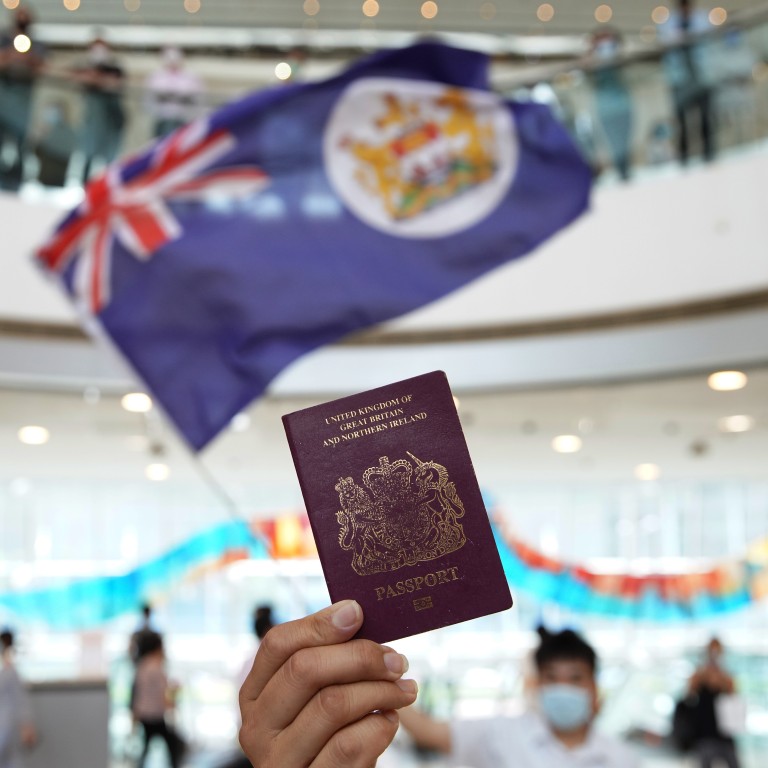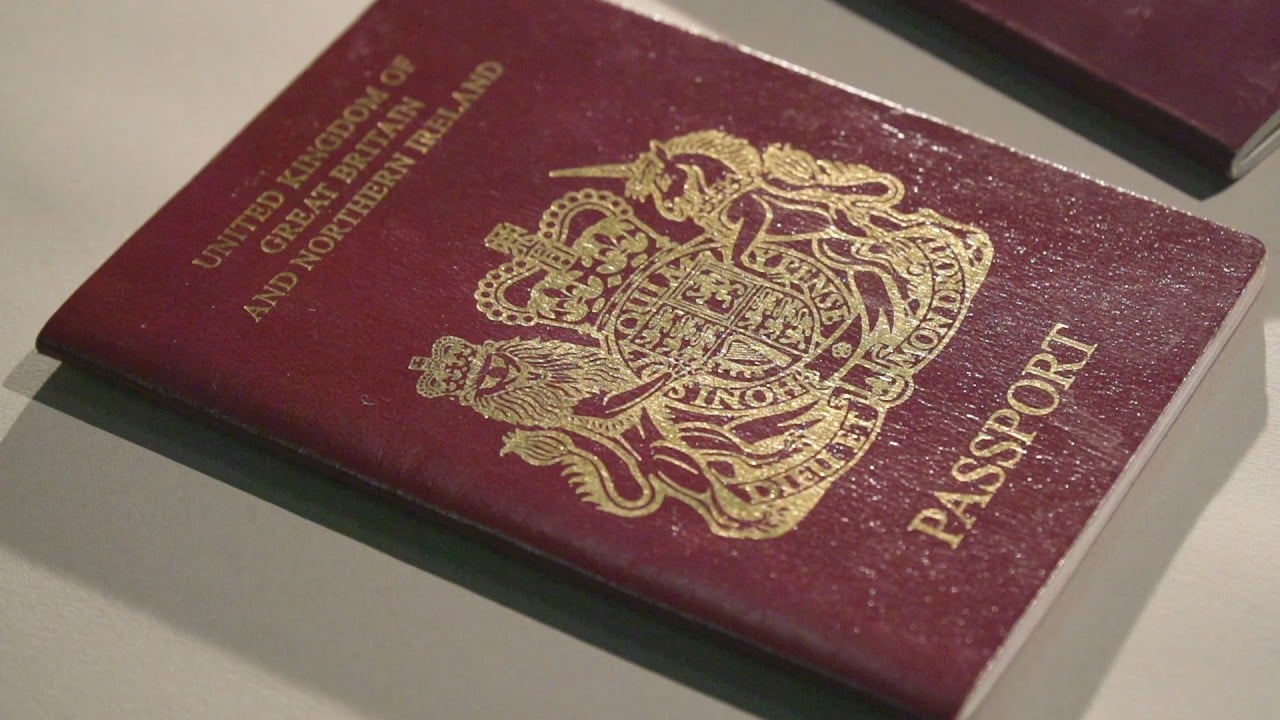
Does British backlash await Hong Kong national security law migrants?
- Several think tanks in Britain have warned sudden influx of Hongkongers could put pressure on public services
- Nearly 3 million people could qualify for pathway to citizenship
Although the number of Hong Kong residents likely to take up the offer is unknown, migration observers said a sharp and uneven influx of immigrants would translate into pressures on jobs, education, health care and housing systems.

01:38
UK offers Hongkongers with BN(O) passports path to citizenship after new national security law
A critical issue for Britain’s capacity to accommodate an influx of Hongkongers was the time period over which they might make the move, according to senior economist Andrew Aitken at the London-based National Institute of Economic and Social Research.
“Historically, most recently with steep increases in migrants coming from the European Union in the 2000s, the UK has not done a very good job at expanding infrastructure, schools, health facilities, etc to cope with increased population.”
Aitken pointed out that “migrants, from any country, often tend to locate where other migrants from their country already are, [which means they are] not evenly spread across the country”.
He suggested a strategy to encourage migrants to settle away from the largest cities. “This could perhaps be in the form of some benefit to employees in particular locations for hiring migrants from Hong Kong.”
Last year, an estimated 677,000 people moved to Britain, where 14 per cent of the population is foreign-born, with a net migration increase of 270,000, according to the British Office for National Statistics.
Hong Kong national security law official English version:
Britain’s migrant population is concentrated in London, where about 35 per cent of foreign-born people in the country live, according to the House of Commons Library. The 2011 census recorded nearly 400,000 Chinese people living in England and Wales, making up 0.7 per cent of the total population, with the majority in Manchester, followed by Birmingham.
A June survey showed nearly two-thirds of Britons had heard about and supported the government’s plan to give BN(O) passport holders a permanent right of abode, according to London-based research data and analytics group YouGov. About 20 per cent disapproved of the proposal, while 14 per cent said they were not aware of it.
Think tank MigrationWatch UK, which advocates for significant reductions in immigration, said opening the door to so many people was “a policy that has not been thought through”, even if only some take up the offer.
“Migration on this scale has contributed or added to the housing shortage and to pressures in sectors such as education, health and transport. These are the problems that invariably follow in the wake of mass immigration,” said MigrationWatch chairman Alp Mehmet.
Immigration firms report rush of Hong Kong BN(O) renewal interest
Rob McNeil, deputy director of the University of Oxford’s Migration Observatory, said a sudden and rapid arrival of a very large number of people would create pressures on public services, which tended to stimulate a negative backlash.
“One can realistically imagine that if there were hundreds of thousands of people to arrive in the UK in a short space of time – or possibly even more – while there may well be a very large number of people willing to accept that, we can reasonably expect that there would be negative responses from some people,” he said.
“Public attitudes to migrant workers are less antipathetic [in low unemployment] than during periods of higher unemployment.”
McNeil said the pandemic had prompted the British public to recognise the contribution of migrant key workers in health and social care, retail, food manufacturing, transport and delivery.
In a May survey commissioned by the Policy Institute at King’s College London and think tank British Future, 70 per cent of respondents agreed “the coronavirus crisis shows how important a contribution immigration makes in staffing our essential services like the National Health Service”.
“Much of this public support for migrant contribution, particularly for health and care workers, was already there before the pandemic. Attitudes to immigration have been getting more positive over recent years,” said British Future director Sunder Katwala.
A survey in late 2019, by London-based research company Ipsos Mori, showed 47 per cent of British people believed migration had a positive impact on the country, compared to 29 per cent who said otherwise.
Chinese envoy slams Britain’s citizenship offer to Hongkongers
Hong Kong’s 2011 census provides a snapshot of the education level of the cohort potentially eligible for the BN(O) passport. Half of the 6 million Hongkongers aged 15 or older at that time attended secondary school and 28 per cent were in postsecondary education.
Nearly half of the city’s workforce are employed in four key industries – financial services, tourism, trading and logistics, and professional and producer services, according to 2018 figures from Hong Kong’s Census and Statistics Department, which also noted that service industries, including trade, financing and insurance, contributed to 93 per cent of GDP.
According to the World Bank, Hong Kong GDP per capita stood at about US$48,760 in 2019, compared to US$42,300 in Britain.

